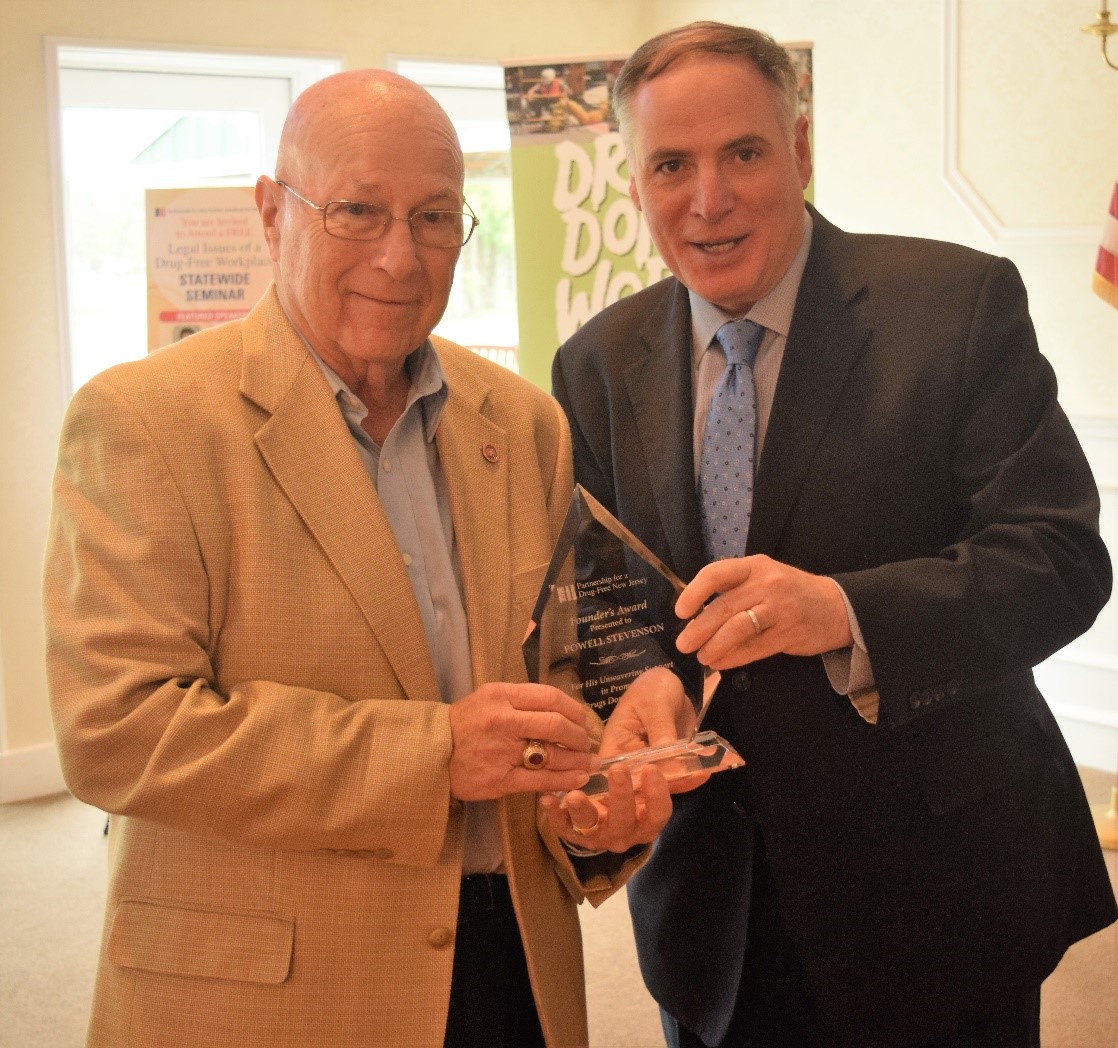Statewide Seminar Addresses Impact of Opioid Epidemic and Legalization of Marijuana on the Workplace
5/16/2018
.jpg)
FOR IMMEDIATE RELEASE: May 16, 2018
Contact: Matt Birchenough, Media Coordinator, 201-916-1032, media@drugfreenj.org
Statewide Seminar Addresses Impact of Opioid Epidemic and Legalization of Marijuana on the Workplace
MAYS LANDING — More than 75 small business owners, employers and other New Jersey residents received an in-depth look into the issues affecting the establishment and maintenance of drug-free workplaces at the Partnership for a Drug-Free New Jersey’s annual Legal Issues of a Drug-Free Workplace Statewide Seminar on Wednesday morning.
The event, which is part of PDFNJ’s Drugs Don’t Work in NJ program, was held at the Mays Lading Country Club in collaboration with Join Together Atlantic County and the Drug Enforcement Administration – New Jersey Division.
“Employee substance use can have many negative effects on business,” PDFNJ Executive Director Angelo Valente said. “Because of the harmful effects substance use can have on employees, employers and businesses, it is paramount that all businesses have plans in place to prevent drug use and maintain drug-free workplaces.”
Nancy N. Delogu, Esq., of Littler, Washington, D.C., and Nicholas J. Kolen, Assistant Special Agent in Charge with the Drug Enforcement Administration – New Jersey Division, provided the audience legal and law enforcement perspectives on drug-related issues in the workplace.
The seminar addressed the opioid crisis, prescription drug misuse, drug testing protocols, trends in workplace substance use and misuse and creating a comprehensive drug-free workplace policy.
The opioid epidemic has impacted every community in the nation, and workplaces have not been immune.
“I have never seen a drug crisis like we’re experiencing right now,” Kolen said. All of us need to figure out how we’re going to be a part of the solution.”
The seminar also highlighted the consequences of the potential legalization of marijuana on New Jersey workplaces. Delogu detailed how other states have handled legalization when it comes to the difficult situations employers might find themselves in when hiring employees who use marijuana.
The Partnership recognized Powell Stevenson of the New Jersey State Industrial Safety Committee, and a member of PDFNJ’s advisory committee for more than 15 years, by presenting him with the Drugs Don’t Work in NJ Founder’s Award to recognize his leadership and advocacy for establishing and maintaining drug-free workplaces in the New Jersey business community.
More than 70 percent of the 14.8 million Americans who misuse drugs are employed. In total, drug misuse costs U.S. business owners more than $140 billion every year.
Founded in 1992, Drugs Don't Work in NJ merged with the Partnership for a Drug Free New Jersey in 1999. Thousands of New Jersey businesses have benefited from the initiative by establishing and maintaining a safe working environment for their employees.
To sign up for Drugs Don’t Work in NJ, visit www.drugfreenj.org/join-drugs-dont-work.

Powell Stevenson, left, receives the Drugs Don’t Work in NJ Founder’s Award from PDFNJ Executive Director Angelo Valente.
###
Best known for its statewide substance use prevention advertising campaign, the Partnership for a Drug-Free New Jersey is a private not-for-profit coalition of professionals from the communications, corporate and government communities whose collective mission is to reduce demand for illicit drugs in New Jersey through media communication. To date, more than $100 million in broadcast time and print space has been donated to the Partnership’s New Jersey campaign, making it the largest public service advertising campaign in New Jersey’s history. Since its inception the Partnership has garnered 166 advertising and public relations awards from national, regional and statewide media organizations.